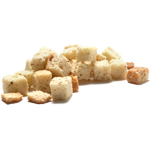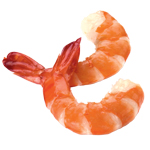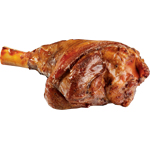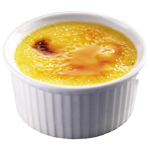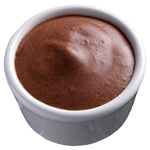Austerity recipes you can bank on
Cramming your menu with challenging ingredients and edgy flavour combinations is all very well in good times; but when diners are penny-pinching you need to make sure the dishes you offer all scream "Eat me!"
Restaurateurs shouldn't be afraid to give their clients the dishes they enjoy - and at a price they like even better. The proof of the pudding is in the eating. Dishes that stand the test of time do so for two reasons: they're good, and people like them.
With the dust still settling from last week's spending review, there's never been a better time to introduce a few dependable classics on to your menu - dishes that will tempt punters into your restaurant and deliver you healthy margins.
Putting these dishes on the menu isn't a cop-out; it is a challenge. If your sticky toffee pudding doesn't taste as good as the one in the bistro across the road, word will soon spread.
STARTERS
Croquetas
The dish everybody from the Costa del Sol to the Costa Brava knows. It's a béchamel in a croquette potato shell. The trick is to cook out the sauce so it's not starchy. It has to be thin enough to ooze out of its crunchy exterior. Flavour it with nutmeg, ham or cheese.
Cost sub-50p a portion
Cost about 50p with dry-cure bacon and a small free-range egg
Ham hock terrine Marcus Wareing deserves the credit for this. You can pad it out with leeks, carrots or, in season, asparagus. A good-sized hock costs about £2 and will give you 8-10 starters. Poach it with vegetables, bouquet garni and white wine. Reduce a little of the liquid for a jelly and add lots of parsley for colour.
Cost with chutney, pickle, mustard or relishes about 60p
Cost 50p-£1.75
Fettuccine Alfredo This is a treat for the veggies. It has the advantage that you can also offer it as a main course. The classic recipe requires sharp Romano as well as Parmesan cheese, plus cream. It's simple, but as with all Italian cooking, quality raw materials pay.
Cost about £1 per portion
MAINS
Thai fish cakes These are spicier and more interesting than the balls of fish and mash many pub-restaurants serve. Coley is cheaper than cod and as good, but crab - if you are by the sea - is best. Accompany with a Thai salad and a dipping sauce.
Cost from £1.50 with the trimmings
Cost about £3.50
Slow-cooked pork belly Sonia Stevenson at the Horn of Plenty, Gulworthy, was probably slow-cooking pork belly before the invention of sous-vide and water baths - so if you don't own one of these, don't give up.
The key is to buy succulent rare-breed meat with thick layers of lean interspersed with well-flavoured fat. Ideally, it should have a crisp crackling cap.
Cost about £3.25
Cost about £4
Oxtail "Gary Rhodes" Yes, he deserves the credit for introducing this to the British public, probably while he was working for Kit Chapman at the Castle, Taunton. Served with mash, it's a fail-safe recipe that will see you through the winter.
Cost about £3.50
DESSERTS
Sticky toffee pudding Francis Coulson, legendary chef of Sharrow Bay in the Lake District, put this on his menu about 35 years ago and it's still going strong. Some chefs prepare it as individual portions, others in a baking tray. Don't stint on the hot toffee sauce poured over it.
Cost about 70p if you don't stint on the ingredients (more with ice-cream)
Popular as "burnt cream" since the 17th century, it arrived on the restaurant scene in the 1970s when Kenneth Bell of Thornbury Castle put it on his menu. There are many variations, but trust the basic one flavoured with the best vanilla you can afford.
Cost about 60p
Fruit crumble More fruit and less of the crumble is the secret of this old favourite. Many restaurants weigh down the fruit with a thick gravel path. There are fillings that go well together, such as strawberry and rhubarb or apple and blackcurrant. But look out for seasonal bargains, Victoria plums, for instance, or Bramleys with a touch of quince.
Cost about 50p
If you make Raymond Blanc's egg white-only recipe, you'll have the yolks left over for your crème brûlée and save money on both.
Cost about 50p
Cost about 90p (not worth cutting corners)



